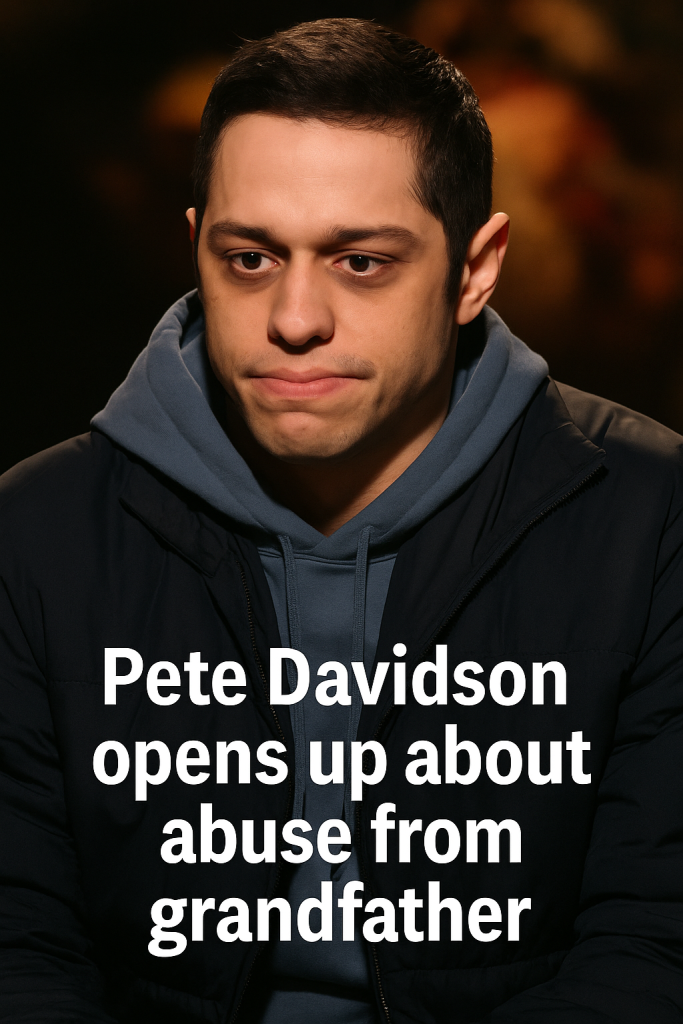Pete Davidson, the popular comedian and actor known for his candidness, has recently opened up about harrowing abuse he endured from his grandfather, sharing emotions so intense that he confessed to being “thrilled” at the thought of his grandfather’s slow demise.
In a revealing interview earlier in 2024, Davidson did not shy away from discussing the complex and dark relationship he had with his grandfather, a figure in his life who inflicted emotional and possibly physical pain during his childhood. His unfiltered admission has sent shockwaves across social media, capturing widespread attention and sparking conversations about abuse, healing, and mental health.
“He’s someone I honestly don’t want around,” Davidson stated, reflecting on years of unresolved trauma that shaped his feelings today. The comedian expressed a rare level of vulnerability, describing how the abuse left lasting scars and how it profoundly affected his mental health into adulthood.
Davidson’s words, “I’m thrilled he is dying slow,” express a complicated mix of pain, anger, and a longing for justice or closure. Such sentiments reveal the deep wounds abuse can cause, particularly when it’s within family circles where victims are often conflicted between affection, loyalty, and survival.
While celebrities often keep their personal struggles private, Davidson’s decision to publicly share these experiences highlights an important, albeit difficult, dialogue around abuse in families. He emphasized that speaking out is a step toward healing and encourages others suffering in silence to seek help and find their voice.
The interview also touches on how Davidson’s background has influenced his work and public persona. Known for blending comedy with honesty about mental health challenges like depression and borderline personality disorder, he explained that confronting such painful past experiences is part of his ongoing growth.
Fans and followers have expressed a mixture of support and surprise regarding Davidson’s candidness. Many praised his bravery, recognizing the stigma still attached to disclosing family abuse, especially when involving elder relatives. Others have debated the ethics of sharing such intensely personal and inflammatory remarks publicly.
This revelation arrives amid Davidson’s broader openness about his mental health journey, including therapy and coping mechanisms that help him navigate the complexities of trauma and fame. His story resonates with many who recognize that healing is often nonlinear and as much about confronting the darkest memories as it is about recovery.
As the conversation continues, Davidson’s testimony adds a crucial perspective to the cultural discourse on abuse, helping to destigmatize the topic while acknowledging the painful realities that some endure behind closed doors. His willingness to speak out serves as a reminder of the power of truth and the necessity of compassion in addressing the wounds of the past.



